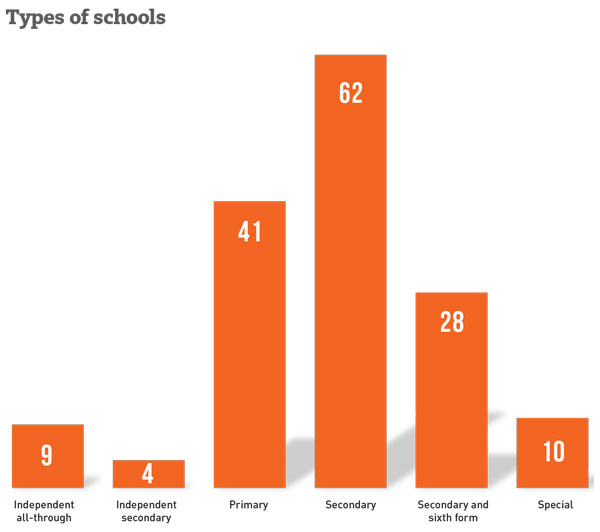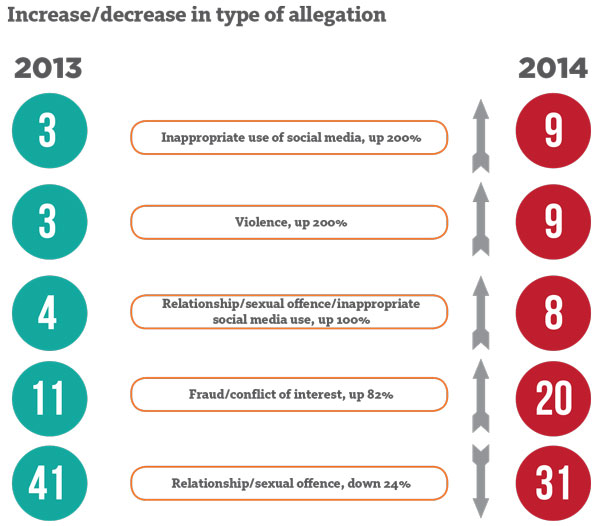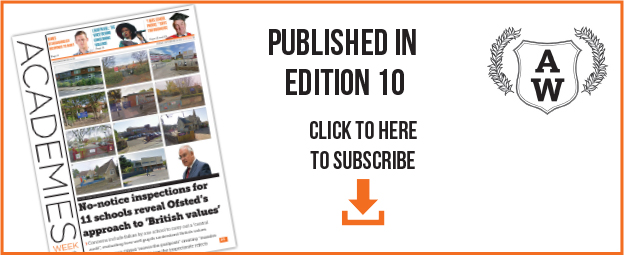It’s not easy to find out how many teachers were banned last year for sexual offences against children. It’s possible – but you have to be prepared to read through more than 100 documents.
Last week, an Schools Week analysis of more than 200 published National College of Teaching and Leadership (NCTL) hearing outcomes from January 1, 2013, revealed that the number of teachers banned in 2014 for “inappropriate” use of social media had more than doubled.

The NCTL, apart from releasing the outcomes of hearings, does not publish any analysis of its decisions, leaving the public in the dark about which “offences” are more common than others.
The General Teaching Council for England, which ran disciplinary hearings before the NCTL, published breakdowns of its hearings in an annual report.

Schools Week extracted information from each NCTL report on variables such as gender, allegations, job role, location of the school, and whether the hearing was in public or heard in private.
Most teachers were banned for relationships with pupils and other sexual offences, most often in secondary schools or sixth forms.
But not all misconduct cases make it to a hearing. John Roberts, chief executive at Edapt, a subscription service providing edu-legal support and advice for school staff, said: “It’s important to remember that the NCTL panel only hears the most serious cases; more than 90 per cent will not be referred . . . most will be dealt with by the relevant school’s internal disciplinary procedure.”
Schools Week’s research did, however, point to a number of other trends among these most serious cases.
A higher percentage of hearings have been held in private this year – so far, 45 per cent compared with 30 per cent for all of 2013.

A private hearings is held if it “appears necessary”, after a teacher successfully requests it in “the interests of justice” or to protect children or vulnerable witnesses.
On average, in both 2013 and 2014, two-thirds of the cases related to male teachers, although they make up a minority of the classroom workforce.
The most common allegations this year related to sexual offences and social media, with almost half of hearings falling into this category.

Reflecting on this, Mr Roberts said: “Teachers should ensure that they are familiar with and understand their school policies on social media.
“Teachers should restrict all information on their accounts, especially Facebook, to friends only and should not accept or invite friend requests from current or former pupils, especially if such invites are from anyone under 18.
“If teachers are operating a social media account on behalf of the school, they should make sure they fully understand what the school account is to be used for, are familiar with any relevant policies, and keep all personal accounts completely separate.”
Common other categories of teacher offences include fraud, exam malpractice, violence, and allegations of drugs or alcohol misuse.
Conflict of interest and fraud cases have risen 82 per cent between 2013 and 2014. Examples includes teachers lying on CVs or hiring family members without informing the governing body.
There is no evidence that prohibition orders are rising: 82 per cent of teachers were banned in both years.
Source: NCTL hearing decisions







Your thoughts